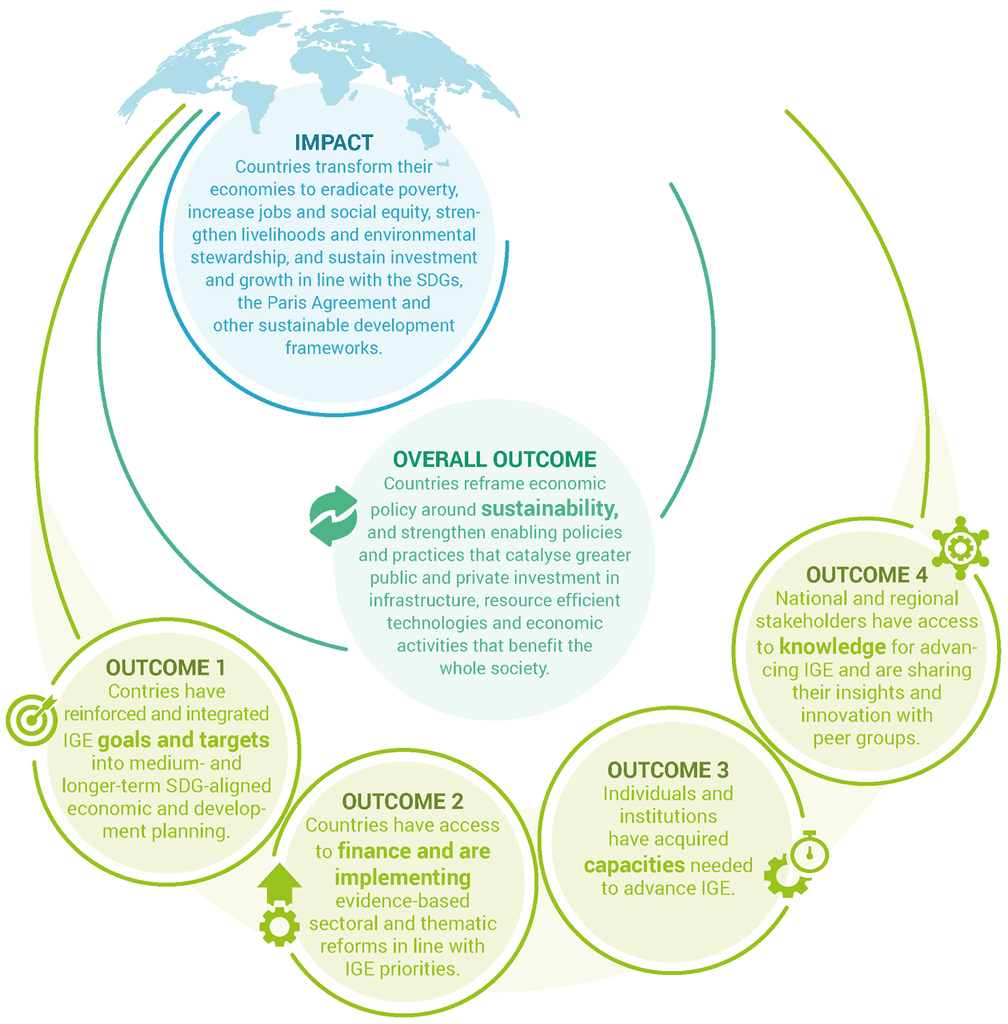Between 2021-2030, PAGE is entering a new phase: where the Partnership will deepen its engagement with current partner countries, assist new countries in integrated economic policy development and national planning, and widen its alliance with other institutions, initiatives and programmes, including from the private sector and civil society, with special attention to youth and gender movements.
2020 marked the launch of the strategy, which outlines this vision and implementation plan. The objective is to catalyse and strengthen a fair and green economic transformation adding to the momentum of PAGE, growing the Partnership and enhancing its impact. This mission is tied to accelerating efforts to achieve the goals and targets of global sustainability agreements, especially the 2030 Agenda, Paris Agreement and Post-2020 Biodiversity Framework.
PAGE was conceived at Rio+20 to support countries in reframing economic policies and development plans for a transition to an inclusive green economy — one that is low carbon, circular and socially inclusive. Since then, PAGE has built a strong foundation with results that include assisting partner countries in developing 76 national policies and development plans, training over 6,000 green economy practitioners and inspiring 96 countries to act on greening their economies.
The PAGE 2030 Strategy and Delivery Plan for 2021–2025 outlines the planned activities that are clustered under a Country Support Package and a Global Services Package.



